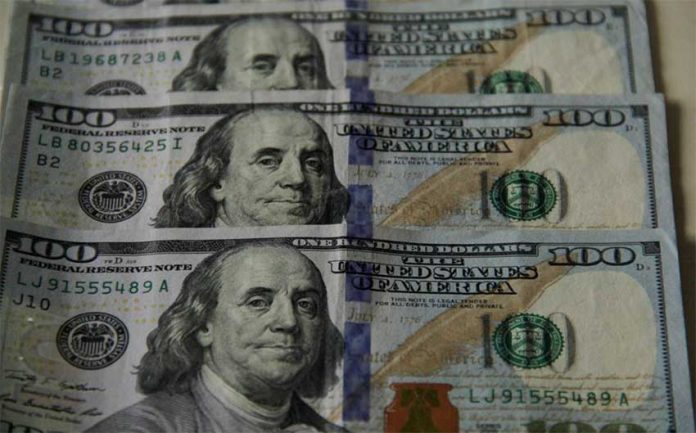The fear of deportation fed by United States President Donald Trump’s hardline rhetoric on immigration and a strong U.S. labor market and economy drove remittances from Mexicans outside the country to an all-time high in 2018.
Mexicans working abroad, mainly in the United States, sent US $33.48 billion to Mexico last year, an increase of 10.5% over the 2017 figure, according to the Bank of México (Banxico).
The remittances were sent in 103.9 million separate transactions, a 6% increase on the 2017 figure, and each one was on average $322 compared to $309 the year before, Banxico data shows.
Almost 98% of remittances were sent by electronic means and just over 94% came from the United States.
The total dollar amount sent to Mexico made remittances the country’s second largest foreign currency earner after auto exports, which totaled around $142 billion.
Just seven states received half of all remittances sent.
Michoacán took in just under $3.4 billion followed by Jalisco, with almost $3.3 billion; Guanajuato, with just over $3 billion; México state, with $1.9 billion; Oaxaca, with $1.7 billion; Puebla, with $1.7 billion; and Guerrero, with $1.6 billion.
Financial analysts say that Trump’s tough stance on illegal immigration has encouraged Mexicans in the United States to send more money home.
The Mexican government estimates that around 12 million Mexicans live in the United States and about half that number are there illegally.
Analysts at the Mexican bank Banorte say they expect the flow of remittances from the United States to remain strong in 2019 because the fundamentals of the U.S. economy are strong.
However, the International Monetary Fund (IMF) is predicting growth in that country will slow to 2.5% this year compared to 2.9% in 2018, which could slow the growth of remittances to below the double-digit spike seen in 2018.
But anti-immigration rhetoric is likely to continue to encourage remittances, Banorte said, provided that no measures are taken to limit them.
While a candidate for president, Trump threatened to cut off remittances to Mexico, proclaiming that such a move would pressure the Mexican government to cough up “a one-time payment of $5-$10 billion” for his border wall.
However, the United States government has never tried to put the plan into place and, according to a migration expert, it would likely backfire on the U.S. president.
“My first reaction was, ‘That sounds counterproductive,’” Andrew Selee, president of the Migration Policy Institute, told The Washington Post last month.
“Mexican migration [to the United States] is dropping in part because Mexican migrants are sending money home so more Mexicans can have a dignified life,” he said.
Cutting off remittances would potentially disrupt lives in Mexico and result in more migration to the United States, Selee added.
Source: Milenio (sp)
